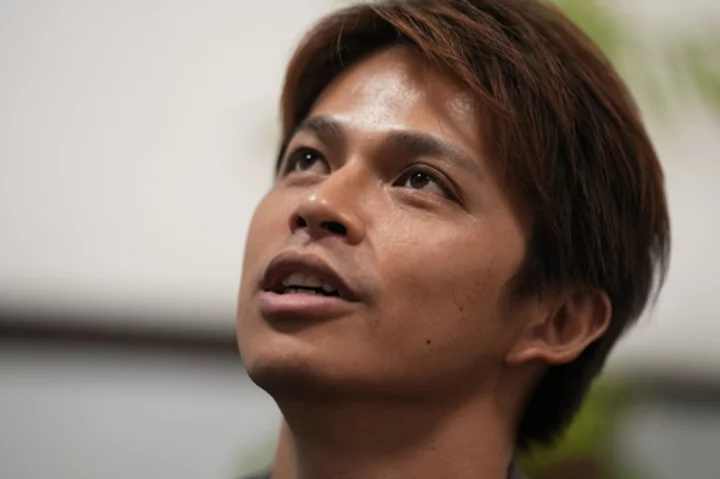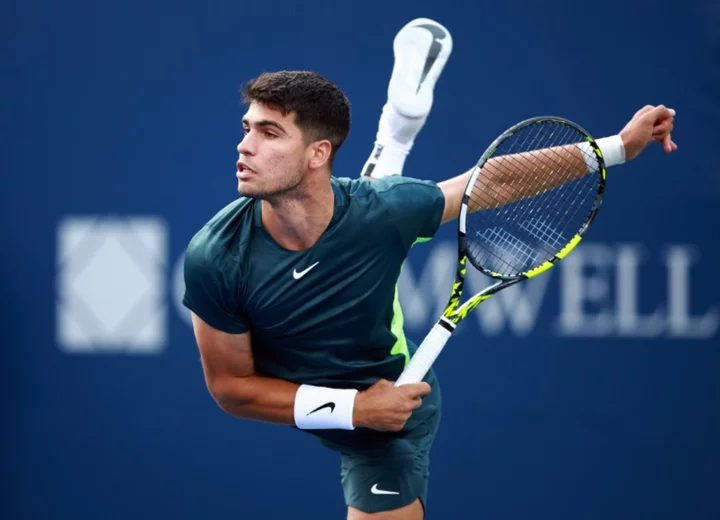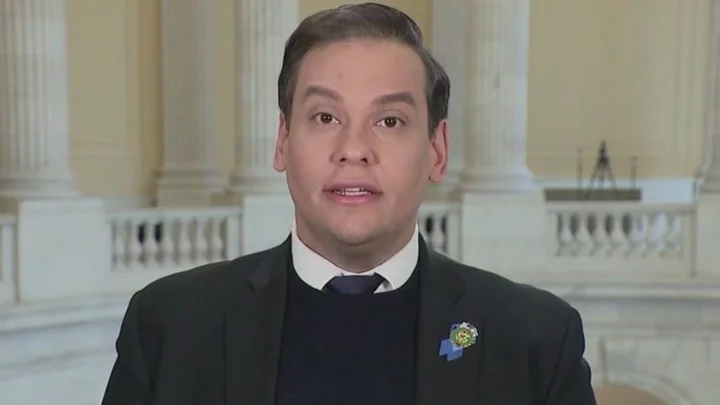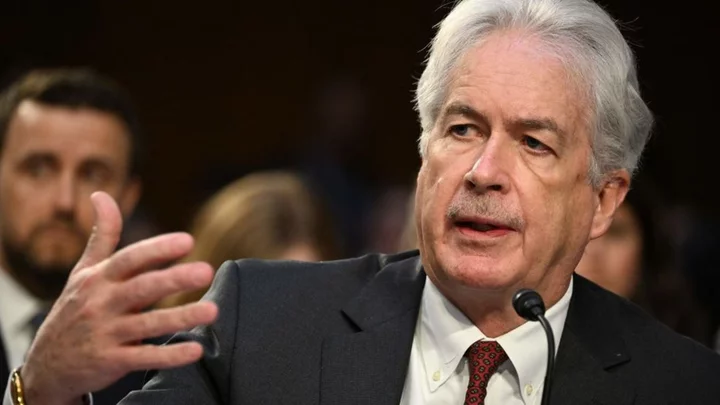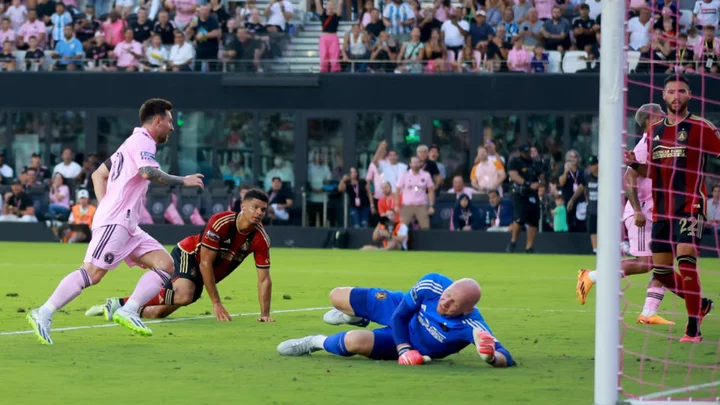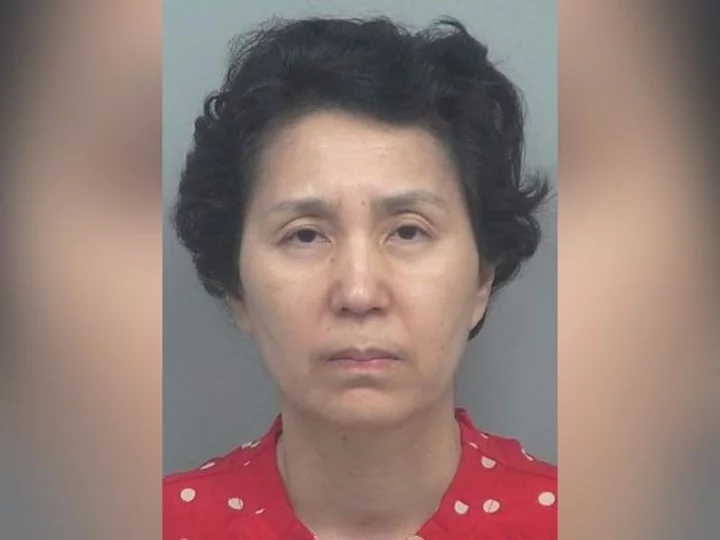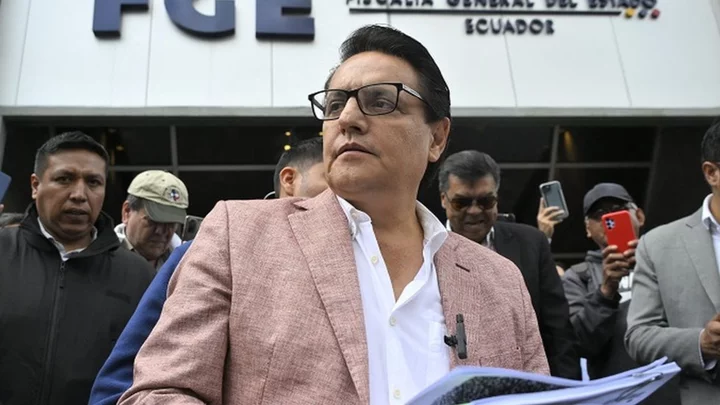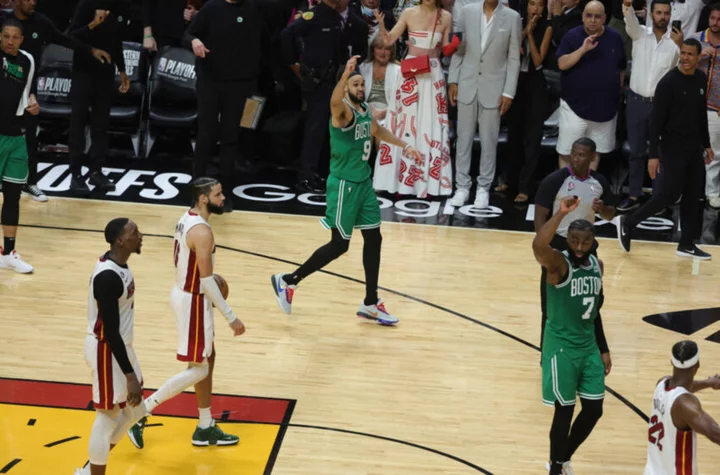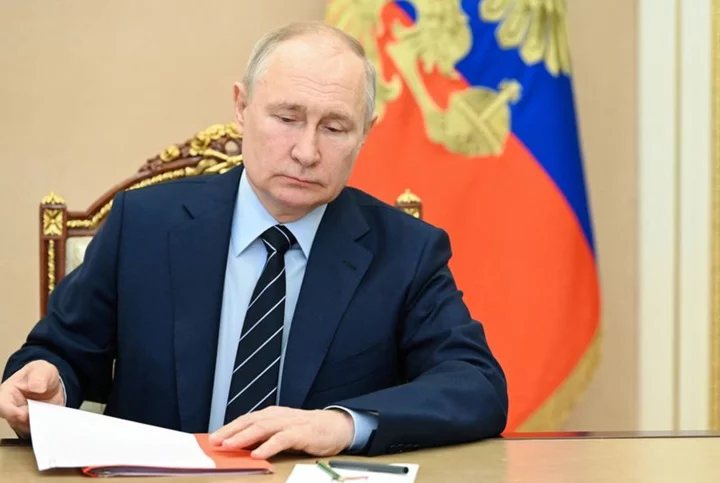TOKYO (AP) — Kazuya Nakamura says he was 15 when one of the most powerful men in Japanese entertainment history forced him to have sex while he was part of a troupe of backup dancers managed by the legendary talent agent.
At least a dozen other men have come forward this year to say they were sexually assaulted as teenagers by boy band impresario Johnny Kitagawa, who died in 2019, beginning with three who spoke anonymously to the BBC for a documentary broadcast in March.
The story has all the elements of a major Me Too reckoning, but in Japan, response has been muted.
While opposition politicians set up a committee in parliament to investigate, and the talent agency Kitagawa founded promised to do the same and offered a brief apology, the news still rarely makes the front pages or lead television news broadcasts.
Kitagawa shrugged off similar allegations for decades. National media almost completely ignored the story, and Kitagawa’s business continued to thrive, even when a Tokyo appeals court found several accusers to be credible in a libel case in 2003. When Kitagawa died, he was honored with a massive funeral that filled a stadium.
Nakamura hopes that this time, Japanese society will acknowledge what happened to him.
“I just want to speak the truth,” Nakamura said. “It happened.”
The Associated Press does not usually identify people who say they were sexually assaulted, but Nakamura has chosen to identify himself in the media.
Kitagawa's agency, Johnny and Associates said in response to the AP’s request for comment that all matters had been placed under investigation, and that it will also help with the “mental care” of those who come forward.
ALLEGATIONS WERE LARGELY IGNORED FOR DECADESIn 1999, Japanese weekly magazine Shukan Bunshun wrote in a series of articles articles based on anonymous interviews with former performers that Kitagawa forced boys to have sex .
Kitagawa sued the magazine for libel in 2000, beginning a four-year legal battle that ended with an appeals court finding that “it was demonstrated that the sexual harassment was factual,” and the testimony of the accusers, who appeared in court anonymously, was reliable.
In Japan, the imported phrase “sekuhara,” short for “sexual harassment,” is used to refer to all kinds of sexual misconduct.
However, the magazine was ordered to pay damages over assertions that Kitagawa gave minors cigarettes and alcohol.
Mainstream Japanese media almost completely ignored the story. No criminal charges were filed, and Kitagawa and his agency remained popular and powerful.
Toshio Takeshita, who teaches journalism at Meiji University in Tokyo, blames cozy relationships between corporate media and entertainment companies for the long silence. Access to stars is essential to media companies, so they’re often afraid to cross powerful entertainment figures.
NAKAMURA DESCRIBES A 2002 ASSAULTNakamura joined the Johnny’s Jr. backup dancers in 2001, after his mother helped him apply.
Johnny’s Jr. is the first step on the ladder for many aspiring Japanese male performers, a barely paid training camp for dancers and singers. Hundreds of boys practice with the group every year, and the most successful are picked to perform alongside stars represented by Johnny’s. A select few become stars themselves.
Nakamura said that on Oct. 19, 2002 — he remembers the exact date — he spent the night at Kitagawa’s home after a performance at the Tokyo Dome stadium.
Kitagawa regularly invited dozens of boys to stay at his home, which had a swimming pool, and was stocked with snacks and video games, according to Nakamura and other accusers.
Nakamura said he was sleeping in a bed with two other Johnny’s Jr. members, lying in the middle, when Kitagawa, then 70, forced him to have sex. He just closed his eyes and prayed it would be over. The other two boys kept quiet, sleeping or feigning sleep.
The following day, Nakamura said, Kitagawa handed him one or two 10,000 yen ($125 at the time) bills. He refused, but Kitagawa squeezed the money into his hand.
He performed again that evening. “When you’re on stage at the Tokyo Dome, the view of the penlights is so beautiful,” he said. “It was still so beautiful, but I couldn’t feel the joy.”
He stopped going to the dance lessons.
For years, Nakamura felt ashamed and told only a few close friends and his mother.
He said that he decided to break his silence after another accuser came forward earlier this year. Kauan Okamoto alleged in a press conference at the Foreign Correspondents’ Club in Tokyo that Kitagawa forced him to have sex repeatedly, a month after the BBC’s documentary aired. Okamoto was the first person in decades to accuse Kitagawa without anonymity.
Okamato said he was assaulted beginning in 2012, a decade after Nakamura. It made Nakamura regret not coming forward sooner.
He gave an interview to Shukan Bunshun in June, and was asked to speak to the committee in parliament later that month.
FRUSTRATING APOLOGIESIn May, following a new series of public allegations and the start of a parliamentary investigation the new head of Johnny’s apologized to fans in a YouTube video. Company President Julie Keiko Fujishima also hired former prosecutor Makoto Hayashi to head a three-person investigation.
Hayashi said that the company is not considering monetary compensation, but he said the investigation will move forward with the assumption the sexual assault took place.
But Nakamura said he couldn’t reach the investigators.
He filled out a form on the company’s website to take part in the investigation, he said, and was given a time for a phone call with an administrative assistant, which led to another call, and then an email about scheduling yet another, still not with Hayashi or his team. Nakamura gave up after two weeks of back and forth.
Hayashi declined to be interviewed for this story, and said he did not have a timeline for completing the investigation.
Nakamura said he was planning Japan’s equivalent of a class action with several others. Details were still undecided, and the case’s legal prospects are even more uncertain.
“This is not about winning or losing. It’s important we raise our voices,” he said.
ACCUSERS HOPE RENEWED ATTENTION WILL CHANGE ATTITUDESKitagawa’s accusers, and others, are hoping that more attention will lead to changes in Japanese society.
Japan has been criticized by the U.N. for not doing enough to protect children, amid widespread reports of corporal punishment, neglect and sexual abuse by adults, including parents and teachers.
A legal revision that officially banned violence against children kicked in only three years ago. Last month, Japan raised the age of sexual consent from 13 to 16.
Both Nakamura and Okamoto have testified in parliament, although the opposition, in charge of the investigation, is greatly outnumbered by the ruling coalition and has little power on its own to change legislation.
Okamoto gathered more than 40,000 signatures on a petition to demand tougher laws to protect children, which he submitted to parliament last month.
Yoichi Kitamura, a lawyer who defended Shukan Bunshun in the libel lawsuit and is giving legal advice to Nakamura and other accusers, said the case could be a turning point in Japanese attitudes.
But he’s been disappointed before.
During the trial, Kitamura said, “I felt: We got him.”
Now, decades later, he’s again helping Nakamura and others seek resolution.
Nakamura said that Kitagawa’s accusers doubt that a moment like this will come again.
“We all feel that this is our last chance,” he said.
___
Yuri Kageyama is on Twitter https://twitter.com/yurikageyama

